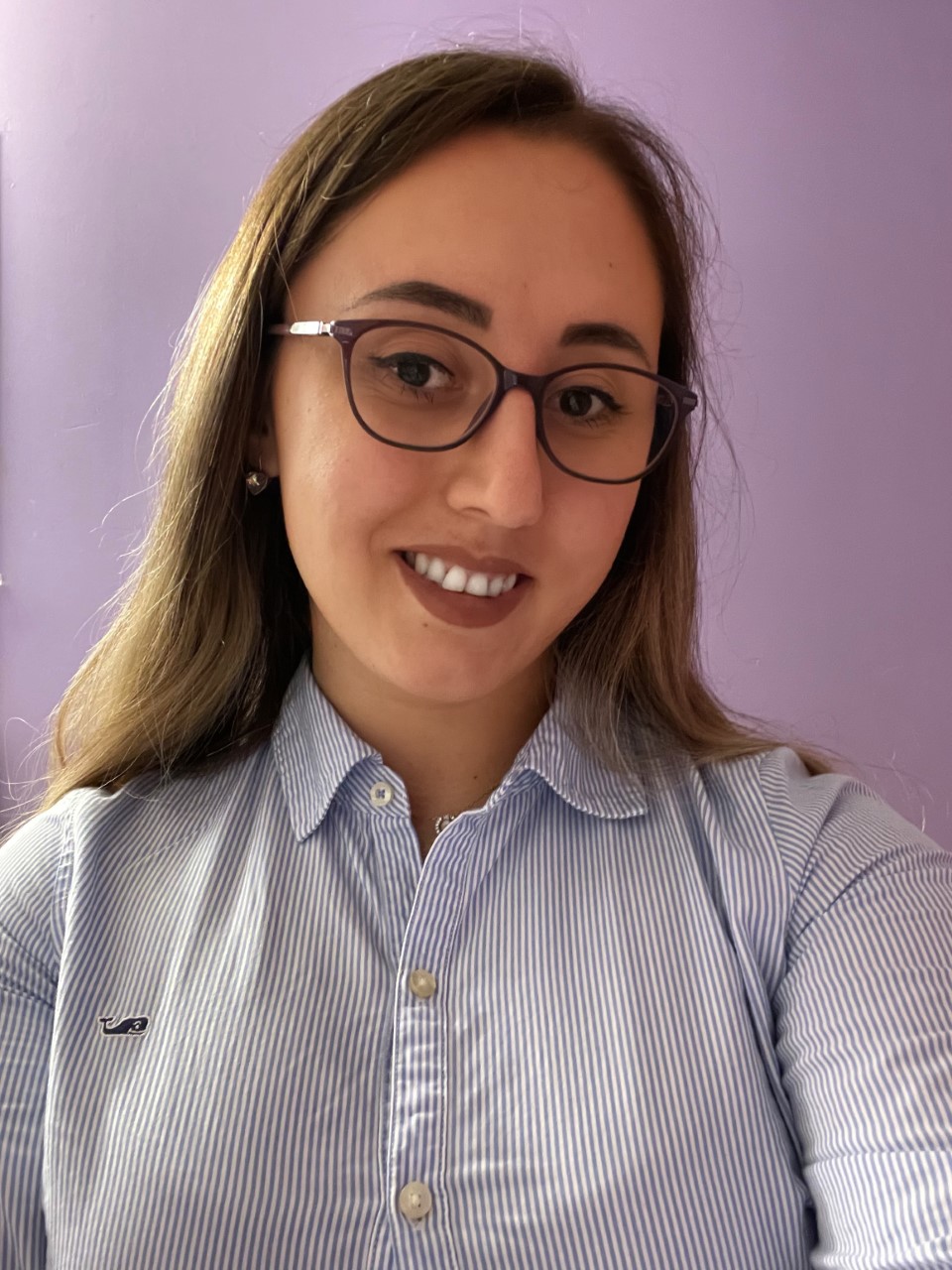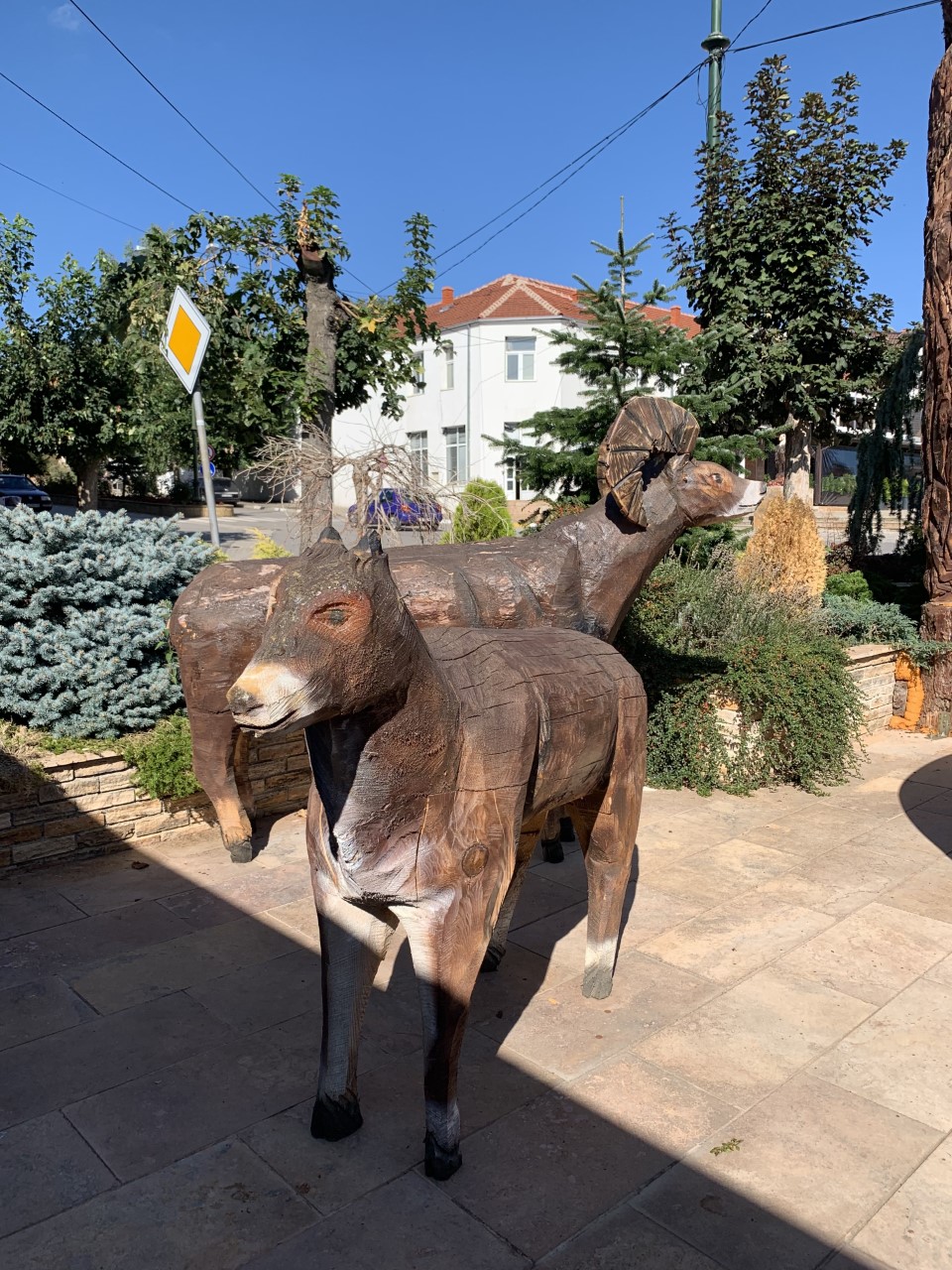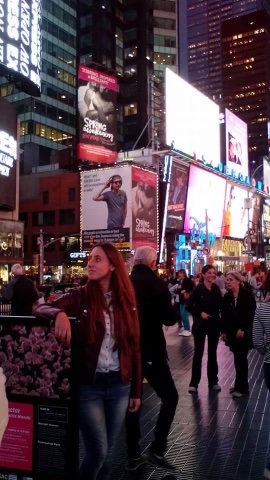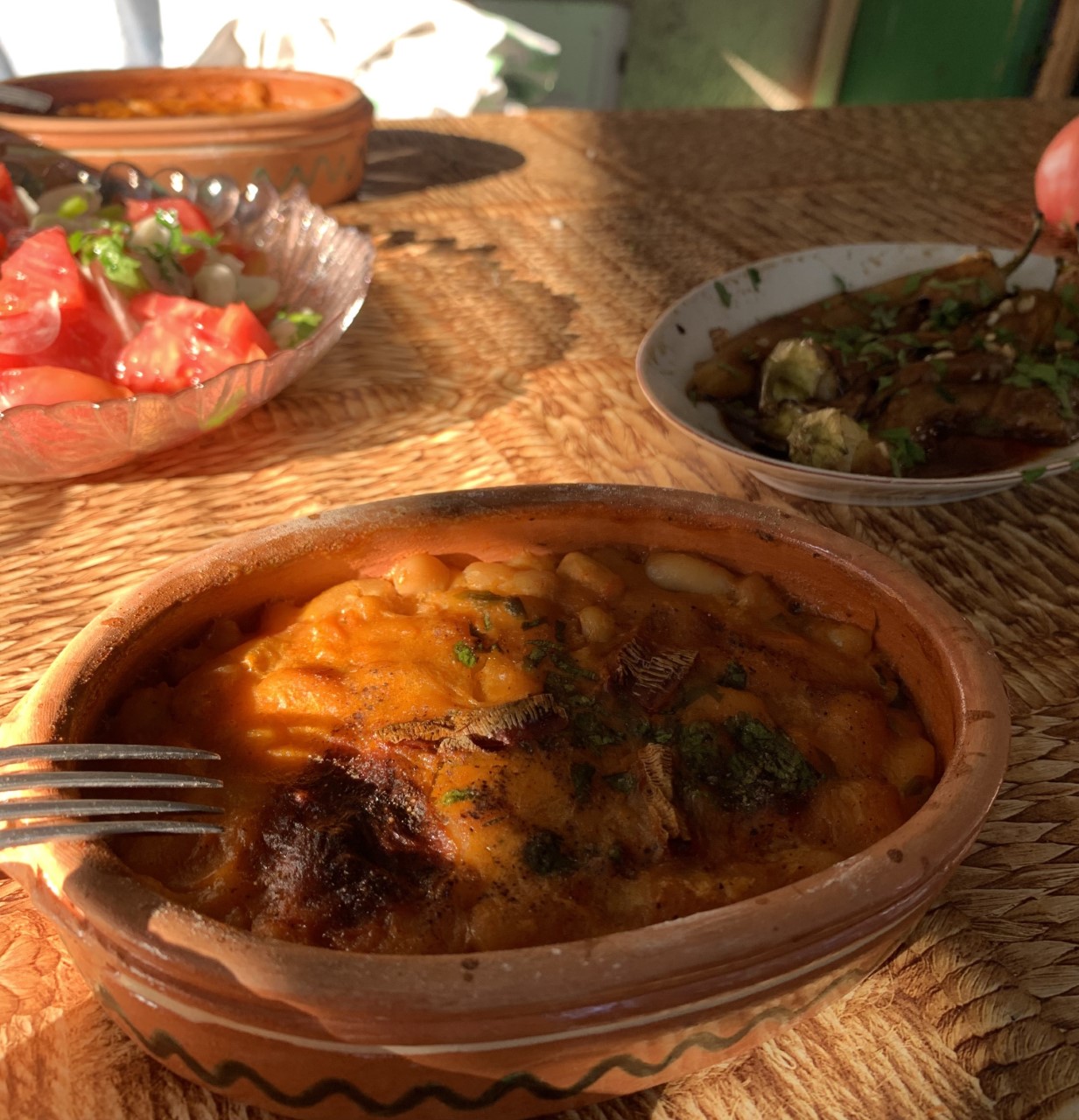Macedonian Student Thanks 4C's for Kindness
by Olivia Williams
Seven years ago, a 21-year-old girl caught a flight from her small town in Macedonia to Istanbul, Turkey, and then a connecting flight to New York City. She had fought to be there. In her country, coming to America can only be done through a specific agency. Each application costs the equivalent of about $2,000, in a country where most people make the equivalent of about $300 a month. Whether or not you are selected, the agency keeps the majority of the fee. But Paraskeva Stanoevska made it, and now she walks the halls of Cape Cod Community College as a Graphic Design student. Stanoevska cites the hospitality and customer service of America as her favorite thing about the country.
“People are very nice, very generous and they like to see you succeed. They are actually happy for you,” she says. Her home country of Macedonia is “totally opposite” and filled with competition. This attitude of competition can be seen everywhere, especially in the attitudes of the government, which does not help its people succeed. “Whoever is in the biggest levels of power stays there,” Stanoevska says. This experience means she is especially grateful for the opportunities that she has in America, such as the healthcare system. In Macedonia, quality healthcare is only given at private hospitals, which are so expensive that almost no one can afford them. “If you’re in the public hospitals, the conditions are not good,” she says, especially the cleanliness and the attentiveness of nurses and doctors. Stanoevska is also grateful for the free Tutoring Center. In Macedonia, tutoring is expensive and thus reserved only for those who can afford it. She is also grateful for the wide range of quality classes offered. These are “simple, small things, but they mean a lot to students like me” who are studying English as a second language, she says.
“It’s different when you study English at school, and when you come here and you start speaking it,” Stanoevska says. She cites grammar and silent letters as the hardest parts of studying English. In Macedonian, words are phonetic and said just as they are spelled. Her favorite word, she adds, laughing, is “folks.” When she is asked about Macedonia, she lights up.
“It’s a very good country to go and visit,” Stanoevska says. “It’s good to go on vacation and relax, if you want to go away from all the traffic, the big city and everything.” Stanoevska comes from Pehcevo, the smallest town in Macedonia. It’s an Eastern town with forests, waterfalls, and delicious food that she describes as clean and quiet with good air quality.
“But it’s an economically poor country to live in,” she adds. “I have so many examples where people that actually graduated from a good college are servers in a bar, where they make like ten dollars a day.” Still, it is her home, and she speaks of it fondly. One of the things she misses most is a dish called tavche gravche, or traditional Macedonian baked beans. She also misses their holidays. Macedonia is an Orthodox Christian country, so the holidays are slightly different. Christmas Eve is celebrated on Jan. 6, and a meal is prepared without using any meat or animal products. Stanoevska’s family also makes a special bread with a coin inside. The oldest in the family, in Stanoevska’s case her father, breaks the bread and gives each family member a piece. Whichever family member gets the piece with the coin in it will be the luckiest for the upcoming year. The family also put straw and hay under their dinner table, which they leave overnight, to allow Jesus to be born in their house. New Year’s Eve is celebrated on January 2nd, when each member of the family brings little pieces of straw to their relatives and neighbors. The straw represents the birth, and it is “sold” to loved ones as a wish of health and happiness, in exchange for money and chocolate.
“That was the best part when we were little, is you go and they give you money,” Stanoevska says. In fact, leaving anyone out of the tradition is seen as an insult. Macedonians also celebrate the Day of the Workers on the first of May, when everyone gets a day off from work to spend time with their families. Stanoevska’s family usually has a picnic in the forest.
Even while talking about her own culture, Stanoevska is impressed with the amount she learns about other cultures in America, especially through their food. Foreign food is only really available at the capital in her country. She’s tried tacos and other Mexican food for the first time, as well as Chinese. She also likes seafood, which she says isn’t available in Macedonia; in fact, she didn’t even know the words for different seafoods before coming to America. Stuffing from Thanksgiving dinner is also among one of Stanoevska’s favorite American foods.
“It’s very nice how people celebrate Thanksgiving,” she says. “I like it as a holiday.” Although she doesn’t eat turkey, Stanoevska normally eats chicken and enjoys celebrating with her American friends. She also loves American hot chocolate, gingerbread houses, and the “amazing” ways that houses are decorated during the winter months for Christmas. Also, among her new American experiences is learning to drive an automatic car. Cars in Macedonia are manual.
Stanoevska credits many of these experiences to Cape Cod Community College.
“I started with the Education Center in Hyannis before I came to 4C’s in order to learn English,” she says. “Here the professors want you to succeed, and they help you with everything you need to be able to go through college…They even give you their phone number, email, so you can reach them any time, which, in my country, is not the case.”
“The education in my country is money-making,” she says. Grades are made up of attendance and only two tests, which rely explicitly on buying specific books from the professors. These books take up about a third of the monthly salary and must be signed and dated by the professor, which means that they can never be reused. At Cape Cod Community College, Stanoevska was shocked at the number of resources, including advisors, tuition aid, the food pantry, and technology help. Stanoevska says this experience has taught her a lot.
“The sky is the limit and you can do whatever you put in your mind,” she says. “It’s a wonderful experience."

Paraskeva Stanoevska. (Paraskeva Stanoevska)

Wooden animals in Pehcevo, Stanoevska's hometown. (Paraskeva Stanoevska)

It was always Stanoevska's dream to visit New York City. She even put it in a wish box when she was little. Here she is in Times Square. (Paraskeva Stanoevska)

Tavce grace, Stanoevska's favorite traditional Macedonian baked beans. (Paraskeva Stanoevska)
Categories: Featured, Student Life